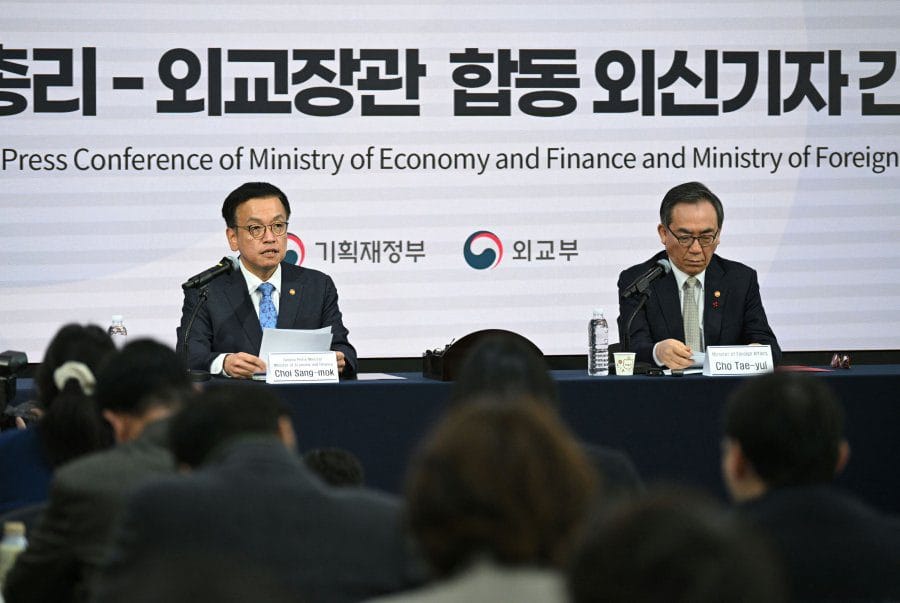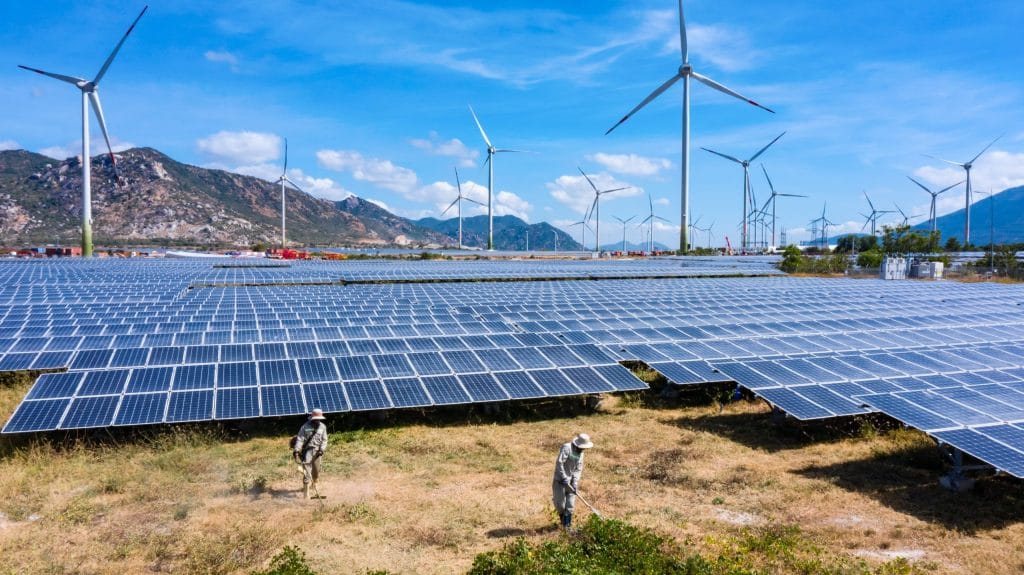Seoul – Finance Minister Choi Sang-mok vowed on Wednesday to restore market credibility amid ongoing political turmoil, stressing that indicators measuring market volatility and economic instability are showing signs of easing thanks to a swift response from the government and the country's constitutional and economic systems.
“The passage of the budget plan and major tax bills in the National Assembly on December 10 shows that South Korea's economic policies move forward through consultations between the government, the ruling party and the opposition parties, regardless of the political situation,” Choi said.
He made the remarks at a joint press conference with South Korean Foreign Minister Cho Tae-yeol on December 3.
Choi, who is in charge of South Korea's economic and financial affairs, emphasized that the South Korean government's top priority is to maintain external credibility.
“We will continue to operate a 24-hour monitoring system for the financial and foreign exchange markets, strengthen incentives for foreign investment, and enhance the international community's understanding of South Korea's solid economic fundamentals through various activities such as economic briefings,” Choi said.
He also suggested normalizing foreign ministerial meetings between the Ministry of Economy and Foreign Affairs, and expanding and reorganizing the ministerial meeting on industrial competitiveness into a public-private cooperation forum.
Regarding the rising volatility of the South Korean won against the U.S. dollar, he said, “While volatility has increased due to political uncertainty and the global strength of the U.S. dollar, we expect volatility to ease as the situation stabilizes.” He added, If fluctuations are excessive, foreign exchange authorities will respond proactively.
Choi also pledged to implement next year's 673 trillion won ($468 billion) budget starting from January 1, when the government's economic policy direction for the new year is usually announced at this time and released before the end of the year.
Choi Soon-sil assured that South Korea will demonstrate firm determination to overcome the current unstable situation.
“South Korea has faced similar political divisions in the past. However, during such challenging times, our constitutional, economic and emergency response systems have functioned effectively to resolve political uncertainty and minimize the economic impact. “We assure you that South Korea will soon be back on track, supported by our strong and resilient economic system. “
Meanwhile, South Korean Foreign Minister Cho admitted that the political turmoil caused by Yoon Eun-hye's declaration of martial law had “hindered” the South Korean government's communication with the Trump team in the past two weeks.
“Having said that, it is undeniable that these events have weakened the political momentum of the previously established communication channels to a certain extent, and it will take time to restore this momentum,” Cao said. “Furthermore, there are inherent limitations because of the president's direct role in these communications.”
However, Cho stressed that under the interim leadership of Acting President Han Deok-soo, who also serves as prime minister, Seoul is “working hard to maintain the momentum of the previously established network to ensure that there are no setbacks in policy coordination and communication with the president” – the election Trump camp and The incoming government.
Cho also outlined at the press conference that Seoul will “actively” prepare for the possible resumption of nuclear negotiations between the United States and North Korea under the second Trump administration, including refining its road map and North Korea plan to deal with North Korea .
Cho noted that U.S. President-elect Donald Trump's appointment of a special envoy to deal with North Korea shows that “the North Korean nuclear issue is not off the priority list” and that “he is committed to resolving the North Korean nuclear issue.” This problem has been serious since.
On Saturday, Trump named Richard Grenell, the former U.S. ambassador to Germany and acting director of national intelligence during his first term, as the president’s special envoy for special missions, including North Korea.
“Because the appointment of the special envoy is being interpreted as evidence that President-elect Trump is not ignoring the North Korean nuclear issue, I think we need to respond more aggressively to that.”
“As for the issue of North Korea's nuclear weapons, we will formulate a plan and roadmap before the incoming U.S. administration takes office, which will help us prepare for the possibility of negotiations between the U.S. and North Korea,” Zhao said.
Zhao also stressed that South Korea has not given up on negotiations with North Korea. On the contrary, North Korea clearly refused to engage in dialogue and negotiation, leading to a breakdown in communication between the two Koreas.
“However, if there are opportunities to negotiate with North Korea in the future, including on the nuclear issue, we are open to all such opportunities.”
Asked whether Russia's war in Ukraine might end, Cao said, “It might take a long time.”
“Given the high complexity of the conflict in Ukraine that has unfolded over the past two to three years, I believe that even with President-elect Trump's strong commitment, a quick end to the war will not be easy.”
Cho said it was too early to determine South Korea's strategy for dealing with the war in Ukraine under the second Trump administration. The strategy will take into account ongoing military cooperation between Russia and North Korea, including North Korea's troop deployments, battlefield developments and international efforts to end the war.
“Based on a thorough assessment of these dynamics, we plan to develop and implement our response strategies accordingly.”

















